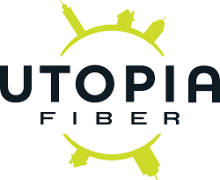How U.S. Courts Are Reshaping Broadband Access - Episode 623 of the Community Broadband Bits Podcast

In this episode of the podcast, Chris Mitchell speaks with Andy Schwartzman, Senior Counselor at the Benton Institute for Broadband & Society, about pressing legal issues affecting telecommunications policy in the U.S. Schwartzman, with decades of experience in media and telecom law, discusses the shifting landscape following recent Supreme Court decisions that limit regulatory agency powers.
They explain the implications of the Major Questions Doctrine and the end of the Chevron Doctrine for the Federal Communications Commission (FCC), particularly how these changes impact the agency’s authority to support broadband access through the Universal Service Fund (USF) and Title II regulations.
The conversation also covers the FCC's policy on Wi-Fi for school buses, facing legal challenges due to the narrowed definition of "classroom." Schwartzman provides insights into the FCC's efforts to classify broadband under Title II, emphasizing how critical this designation is for public safety, cybersecurity, and broadband deployment through infrastructure like utility pole attachments.
As Schwartzman explains, these legal battles highlight the complex intersections of telecommunications law, regulatory authority, and the broader challenges of fostering universal Internet access in a polarized political environment.
This show is 44 minutes long and can be played on this page or via Apple Podcasts or the tool of your choice using this feed.
Transcript below.
We want your feedback and suggestions for the show-please e-mail us or leave a comment below.
Listen to other episodes or view all episodes in our index. See other podcasts from the Institute for Local Self-Reliance.
Thanks to Arne Huseby for the music. The song is Warm Duck Shuffle and is licensed under a Creative Commons Attribution (3.0) license




